Normal Punctuation Worksheets for Ages 3-8
12 filtered results
-
From - To
Explore our engaging Normal Punctuation Worksheets designed for children aged 3-8! These worksheets offer an interactive way for young learners to grasp essential punctuation skills. Through fun activities, kids will learn about periods, commas, exclamation marks, and question marks, enhancing their writing abilities and comprehension. Each worksheet is tailored to promote creativity and critical thinking while making punctuation practice enjoyable. Perfect for classroom use or at-home learning, these resources help build a solid foundation in language arts. Spark your child's interest in writing and expression with our vibrant, easy-to-follow punctuation worksheets today! Start their punctuation journey with us!
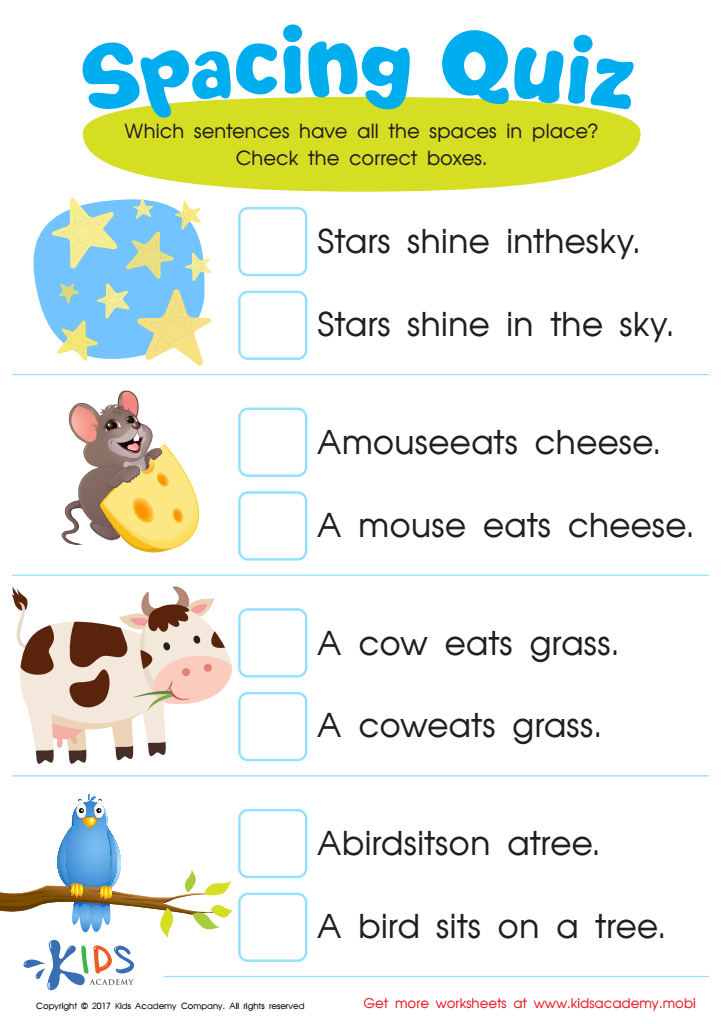

Spacing Quiz Worksheet
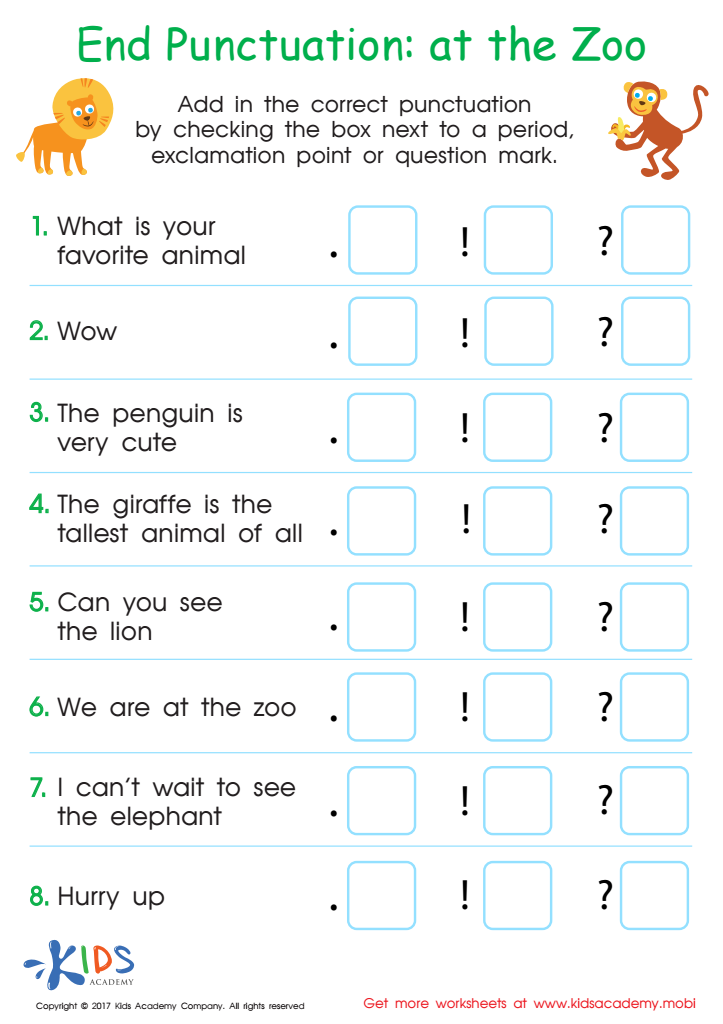

End Punctuation: At the Zoo Worksheet
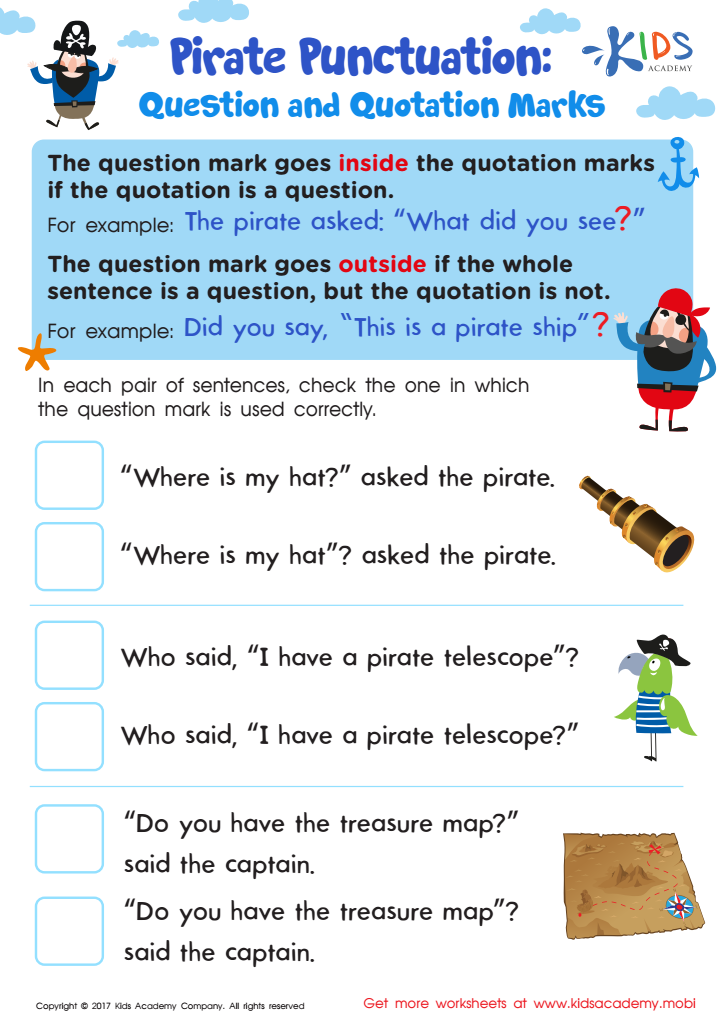

Question and Quotation Marks Worksheet
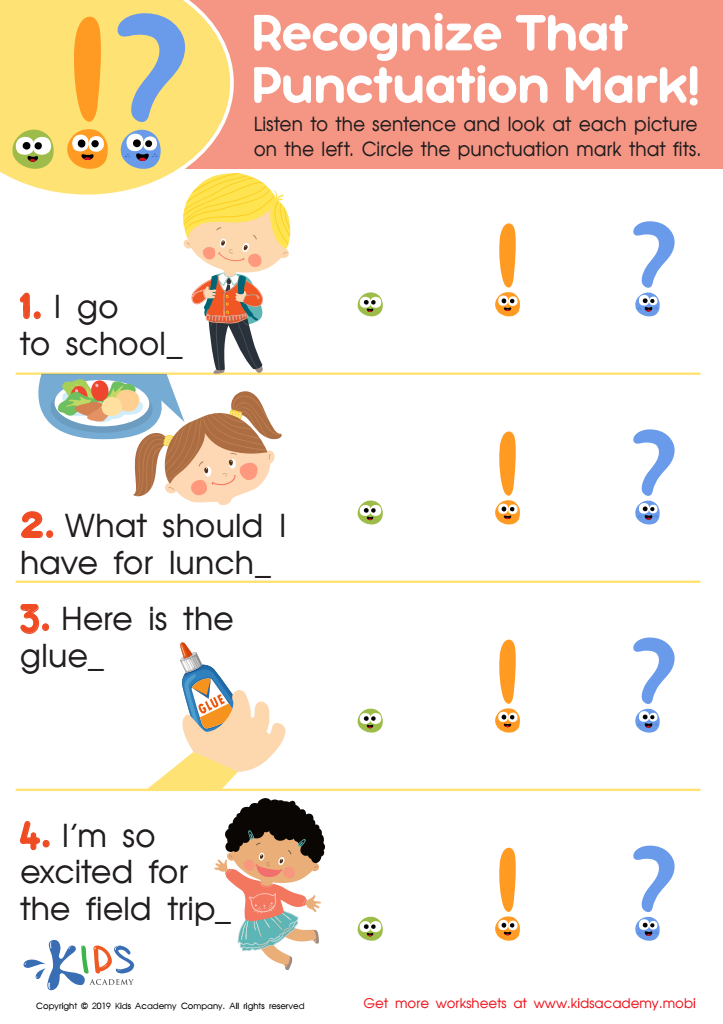

Recognize Punctuation Marks Worksheet
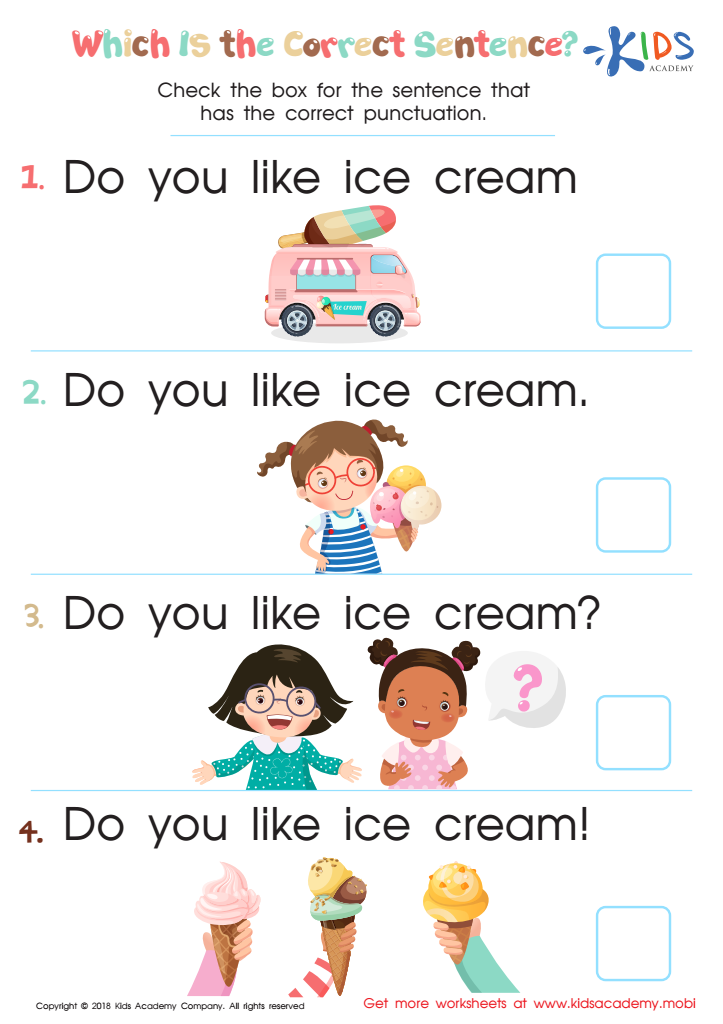

Which is the Correct Sentence? Worksheet
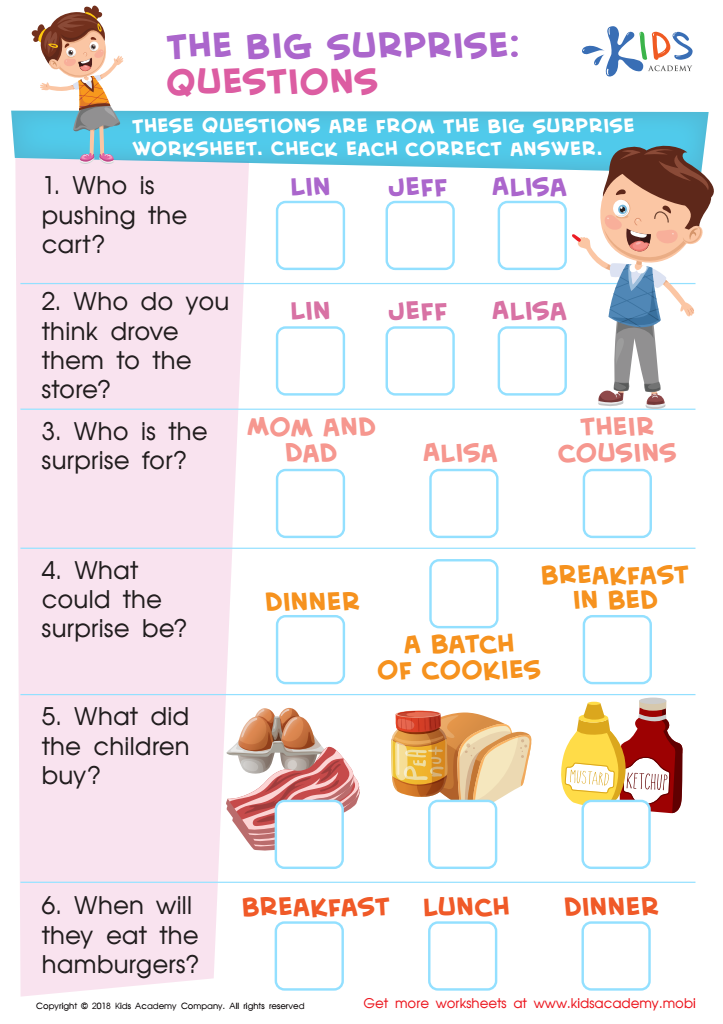

The Big Surprise: Questions Worksheet
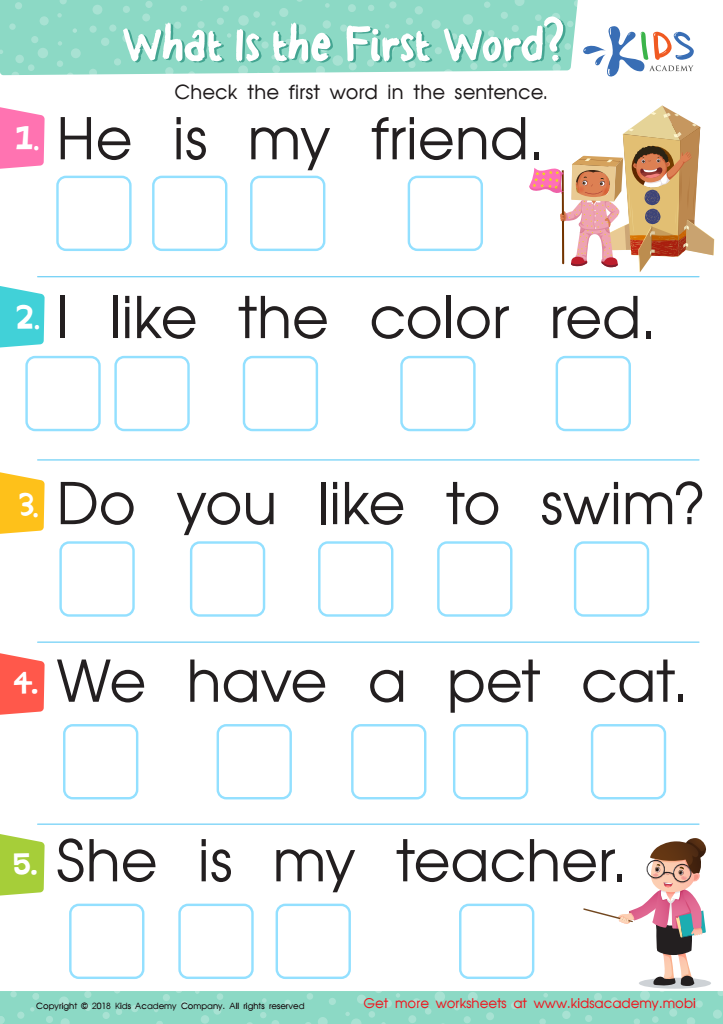

What is the First Word? Worksheet
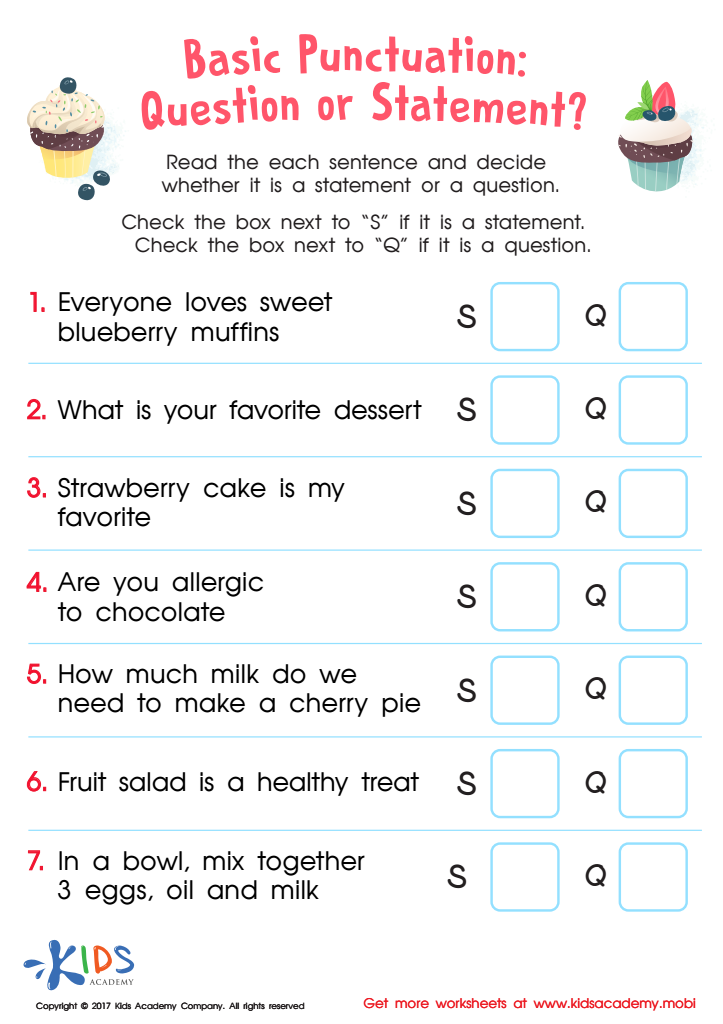

Basic Punctuation: Question or Statement Printable
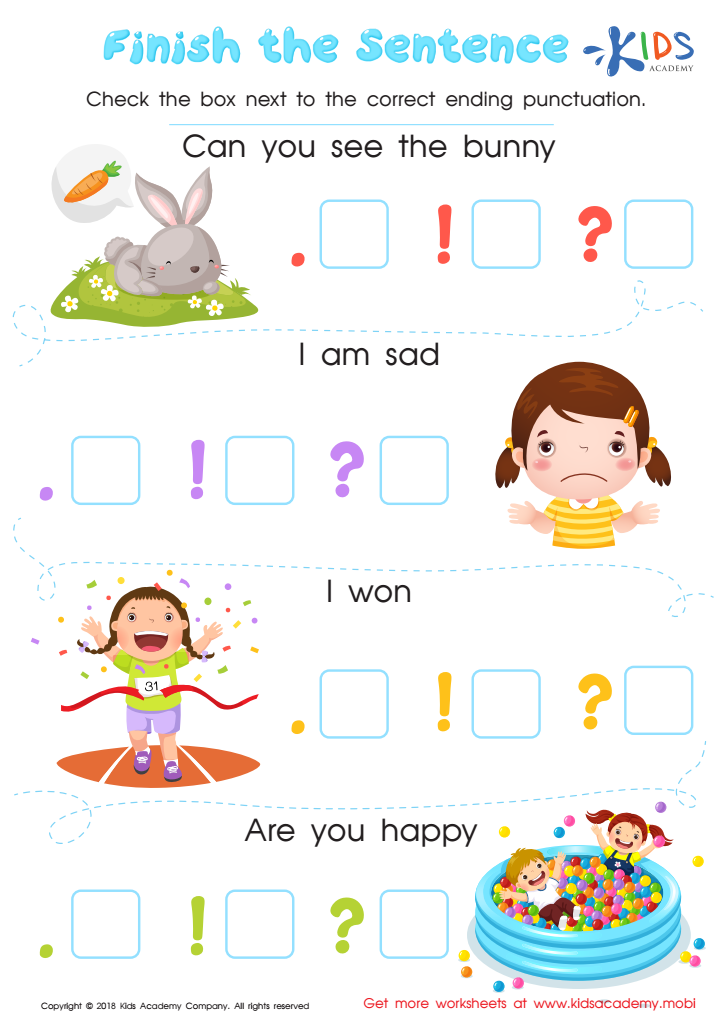

Finish the Sentence Worksheet
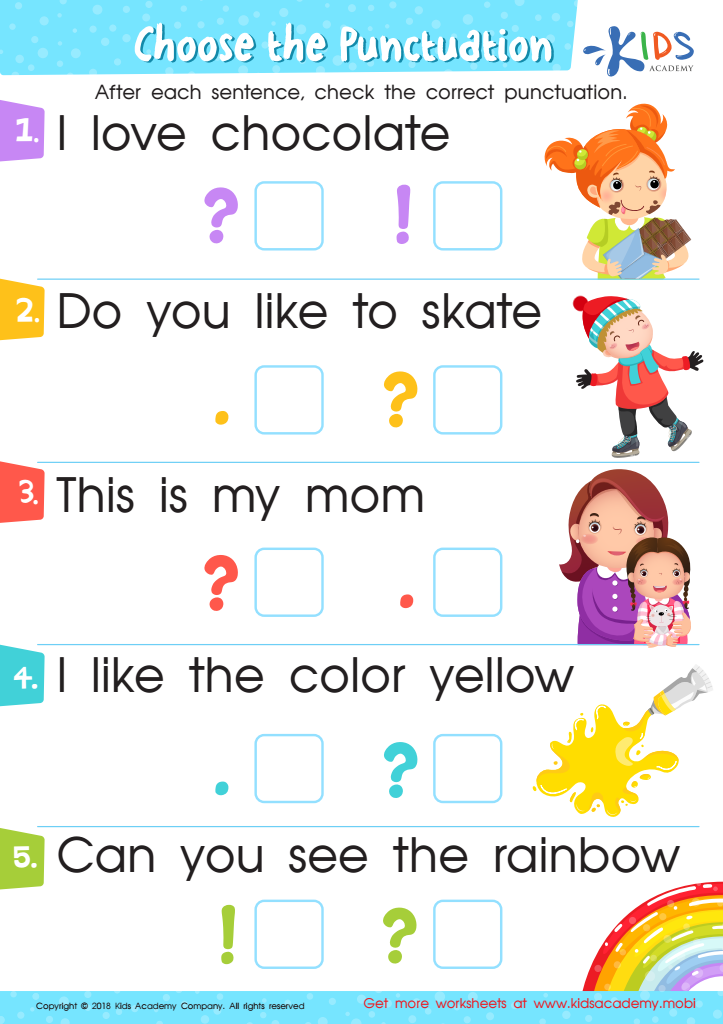

Choose the Punctuation: Assessment Worksheet
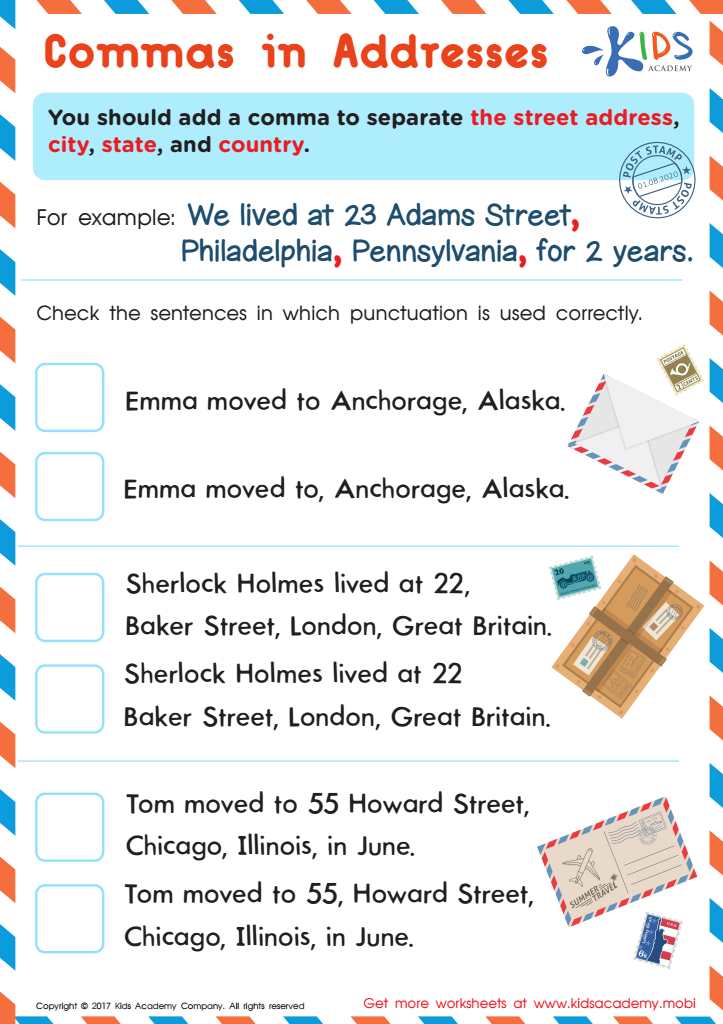

Commas in Addresses Worksheet
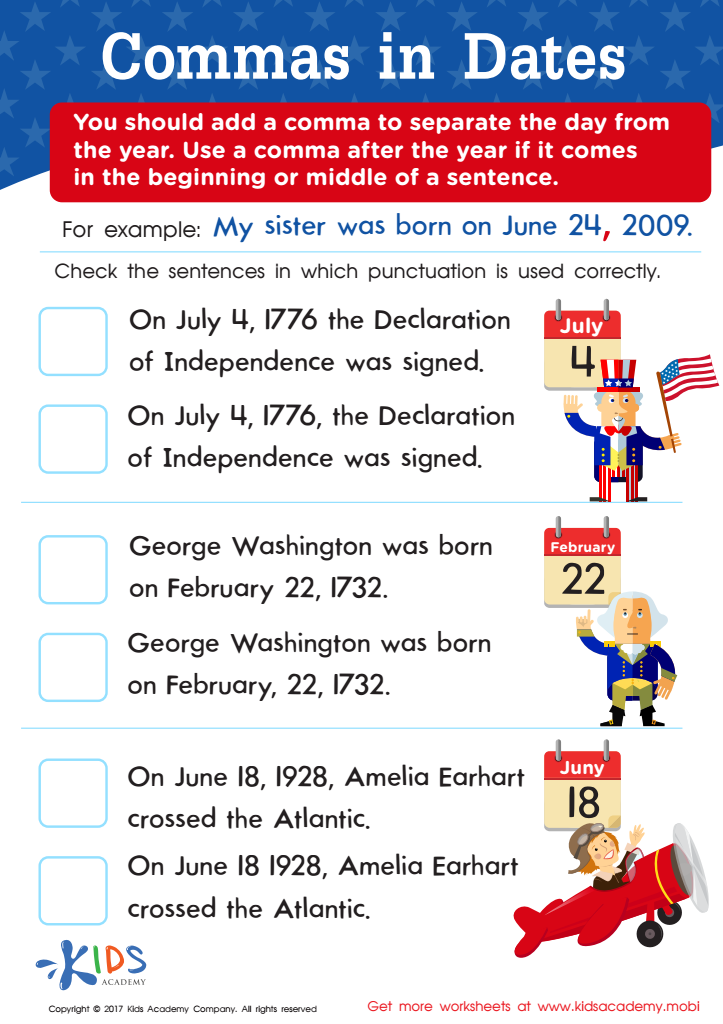

Commas in Dates Worksheet
Normal punctuation is essential for children aged 3-8 as it lays the foundation for effective communication and literacy skills. At this formative stage, children begin to recognize the importance of punctuation marks like periods, commas, question marks, and exclamation points, which serve crucial functions in conveying meaning and emotion in written language.
Firstly, understanding punctuation aids in reading comprehension. Children use punctuation to navigate texts, discern pauses, and grasp the nuances of sentences. For instance, a question mark signals inquiry and prompts a different tone than a period. Secondly, teaching punctuation early enables children to express their thoughts more clearly in writing. As they progress in their literacy journey, using correct punctuation helps them organize ideas and construct coherent sentences.
Moreover, a strong grasp of punctuation fosters confidence in writing, encouraging children to explore their creativity without fear of miscommunication. Parents and teachers play a vital role in this learning process. By emphasizing the importance of punctuation in playful and age-appropriate contexts, they can nurture a love for language and literacy that will benefit children throughout their lives. Supporting their understanding of punctuation is not just about grammar; it’s about empowering them to communicate effectively.
 Assign to My Students
Assign to My Students














